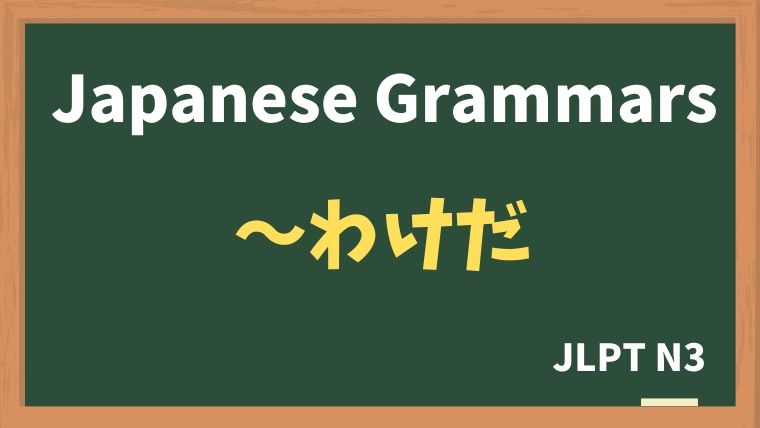
Explanation:〜わけだ / 〜というわけだ
fa-check-circleMeaning
〜なのだから当然・・・という結果になる"
"no wonder / that's why"
This sentence pattern is used to explain or express something that naturally follows from a certain fact or situation, or when it becomes clear after hearing an explanation.
fa-check-circleForm
V(plain form)+ わけだ
イA(plain form) + わけだ
ナA(plain form) + わけだ ※ナAな + わけだ
N(plain form) + わけだ ※Nな / である + わけだ
fa-check-circlePoints
- Logical Conclusion or Explanation: "〜わけだ" is used when the speaker reaches a logical conclusion or provides a reason that naturally follows from the preceding statements.
- Clarification: It helps to clarify or summarize why something is the way it is, making the underlying reason or logic explicit.
- Can Be Used for Confirmation: The expression can also be used to confirm or reinforce something already understood or implied.
fa-check-circleJLPT Level
N3
Sample sentenes
彼は毎日ジムに通っている。だから、そんなに筋肉がついているわけだ。
He goes to the gym every day. That's why he's so muscular.
トムさんは、もう10年も日本に住んでいるから、日本語がペラペラなわけだ。
Tom has been living in Japan for over 10 years, so it's no wonder he's fluent in Japanese.
A:アンナさん、昔モデルの仕事やってたそうよ。
B:だからスタイルがいいわけだ。
A: I heard Anna used to work as a model.
B: That's why she has a good figure.
A:ジェームスさん、昨日彼女と別れたそうだよ。
B:それで、元気がないわけだ。
A: I heard James broke up with his girlfriend yesterday.
B: That's why he seems down.
A:ジェシカさんのお父さんはIT企業の社長らしいよ。
B:そうなんだ。だから、たくさんブランド品を持っているわけだ。
A: I heard Jessica's father is the president of an IT company.
B: Really? That's why she has a lot of brand-name items.
Vocabulary
| Japanese |
English | |
| 筋肉 | きんにく | muscle |
| - | モデル | model |
| 別れる | わかれる | to break up |
| 企業 | きぎょう | company |






